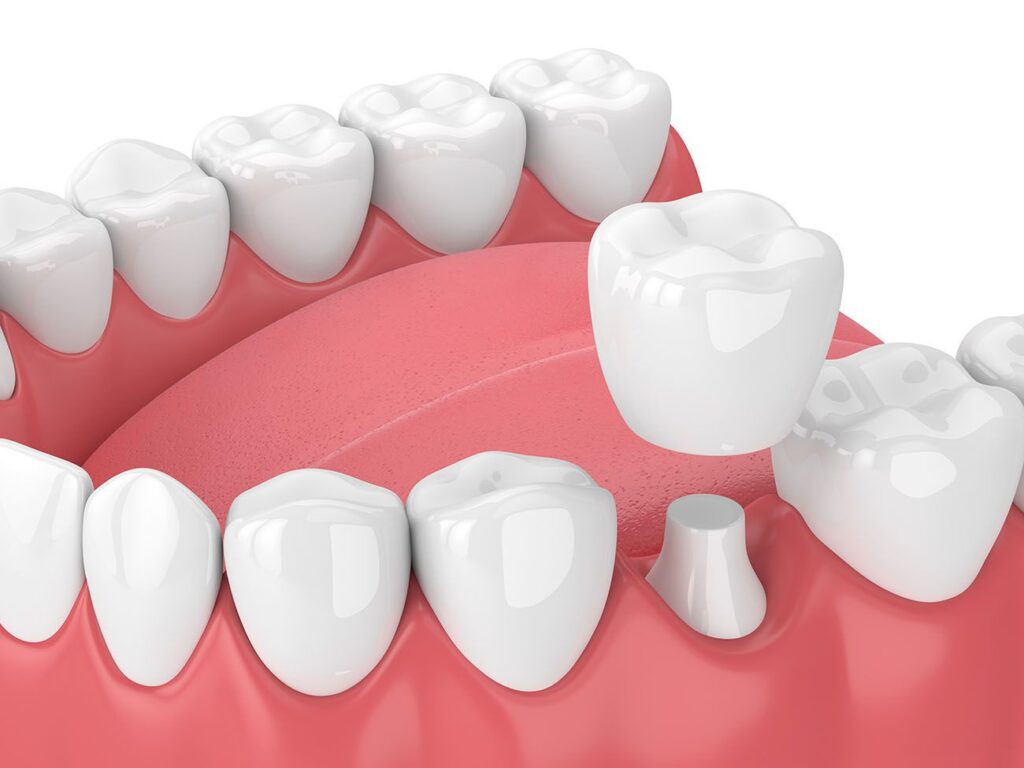If you sustain damage to your tooth, you may worry that your smile will never be the same. Your dentist can offer effective treatment to restore a tooth with a dental crown.
This ceramic cap fits over an affected tooth and seals into place with dental cement. You can notice many benefits from this dental fixture and feel confident that it can remain in place for fifteen or more years with appropriate care.
You may feel more at ease in your dentist’s chair when you know the specifics of what this restorative treatment can offer your smile. Read on to learn about four of the many ways that a dental crown can help a damaged tooth.

How Do Dental Crowns Help My Tooth?
Replace Thinned Tooth Enamel
Your teeth have a hard outer layer called enamel that shields the sensitive interior of a tooth. Though durable, enamel may erode over time, exposing the inner layers of the tooth. You might feel sensitivity pain when external stimuli touch the nerves there.
Enamel cannot grow back once gone. But your dentist can replace weakened tooth enamel with restorative solutions like dental crowns. The cap of a crown fits over an affected tooth, substituting thinned enamel and providing protection once again. Its seal ensures no stimuli cannot penetrate, so you can feel relief from tooth sensitivity.
Repair Tooth Breakage
Your teeth endure wear and tear as you bite and chew without issue. But accidents can happen that may leave a fracture, chip, or crack in the tooth. This may disrupt the look of your smile, but it could also leave the interior of the tooth vulnerable to harm.
Seek prompt treatment for a dental injury like this. A dental crown can not only restore the appearance of your tooth, but it will also give proper protection so it no longer is at risk of dental dangers accessing the broken area of the tooth.
Support Other Dental Procedures
Dental crowns serve as effective dental treatments on their own. But dentists also employ them to support other dental procedures as well. For instance, a crown can act as the perfect prosthetic tooth to sit atop a single dental implant.
Dentists will also use a crown to preserve a tooth after undergoing root canal therapy. You may receive a crown if your dentist treats you for severe tooth decay. The crown covers a larger area than a dental filling so that you can have optimal dental protection.
Enhance the Look of Discolored Teeth
Dental crowns can offer more than just restorative benefits. A dentist builds crowns on an individualized basis for each patient. They consider the size, shape, and color of the surrounding natural teeth to ensure the perfect look for your unique smile. And they can also factor in your smile aesthetic goals.
A dental crown can cover a tooth that has stubborn stains or discoloration. The ceramic material will resist further staining and give the tooth a brighter, whiter appearance that can last many years.
